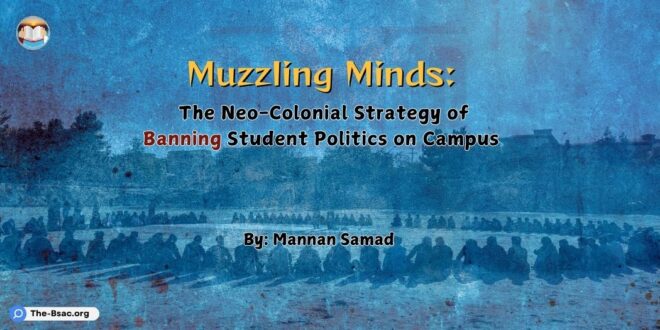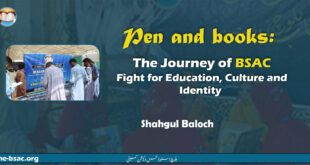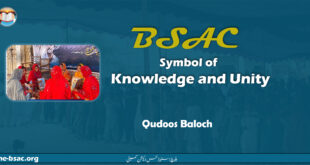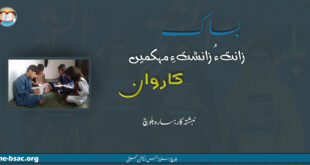Muzzling Minds: The Neo-Colonial Strategy of Banning Student Politics on Campus
By: Mannan Samad
From totalitarian regimes to quasi-hybrid democratic setups, student politics in Pakistan has experienced a rollercoaster ride, witnessing multiple forms of crackdowns and bans during various government tenures. From time to time, different authoritarian regimes have imposed restrictions on campus politics under the pretext of preventing violence, maintaining discipline, or boosting academic performance, but the underlying motive behind all these unreasonable prohibitions has always been to censor student politics, crush student resistance, and curb the political environment of consciousness on campuses.
Prioritize Education, not Politics: Balochistan High Court Ridiculous Ruling
In a shocking move, a notification was issued by the Government of Balochistan’s College, Higher, and Technical Education Department on January 7, 2025, officially banning all political activities and gatherings within the premises of educational institutions (schools, colleges, and universities) across the province, in compliance with a court ruling following a constitutional petition filed by Advocate Shabbir Ahmed, seeking to halt political activities in educational institutions in Balochistan. The court expressed bizarre concerns about students’ futures participating in political activities, but let me add to the knowledge of the court that politics is the real form of education, which is a foundation for genuine knowledge, a corridor to enlightenment, and a catalyst for consciousness—unlike this banking education system based on rote learning, which continues to undermine students’ cognitive faculties, stifle their creativity and critical thinking, and discourage healthy debates among them.
Scrutinising the Ban through Historical Lens
The democratic fabric of Pakistan was torn apart when the then-martial law administrator, General Zia ul-Haq, imposed a ban on student unions across the country on February 9, 1984, in order to fulfil his wicked political intentions. Student unions are still outlawed in all three provinces except Sindh, which lifted its ban on February 11, 2022, after a long period of 38 years, to foster a democratic culture in the province. Students from other provinces have been protesting periodically, demanding the immediate restoration of student unions, as there is no official forum for them to safeguard their rights and register their concerns.
The Khyber-Pakhtunkhwa Assembly has officially passed a resolution on 5th January 2025 to revive student unions. While this resolution is being acclaimed as a revolutionary step, students cast apprehension on the possibility of its implementation.
Significance of Student Politics: A Global Perspective
Several internationally notable universities, such as Oxford, Harvard, Cambridge, Columbia, Berkeley, etc., have become hubs of student politics and intellectual debates since their inception. These academic powerhouses themselves provide a healthy political environment to the students. Student activism is not only recognized but also celebrated and appreciated on a global level. The significance of student politics can be gauged through the scale of its influence on different global movements, revolutions, and anti-colonial resistance. From Africa’s anti-colonial struggles, such as Algeria’s war of independence against France, to the ideological influence of student activism in Latin America, such as in the Cuban Revolution, and the key role of students in the Arab Spring in the Middle East to central contributions of Bangladeshi students to the Bangladesh Liberation War, students have always been at the forefront in resisting colonial powers, driving revolutionary changes, and challenging authoritarian regimes, which showcases the potential and significance of students in shaping both domestic and international social, economic, and political landscapes.
Ban on Political Activities: A Brazen Contradiction to the Constitution of Pakistan
Restrictions on political activities by the provincial high court are tantamount to a brazen infringement of fundamental rights enshrined in the Constitution of Pakistan. Article 17(1) of the Constitution ensures the right to freedom of forming unions. If teachers, traders, and other professionals can form unions or associations to protect their rights and raise their concerns, then why are students being denied such a fundamental right? It is also a violation of Article 16, which deals with the freedom of peaceful assembly. Additionally, it infringes Article 19, which guarantees freedom of speech and expression, as student politics serves as an effective medium of exchanging enlightening ideas and conducting insightful debates. However, such a ban shrinks the space for constructive discussions, which undermines human freedoms and subverts the democratic principles.
Rendering Political Science Departments Redundant
Different colleges and universities across the province offer degrees such as “Political Science.” Now the question arises: will the High Court of Balochistan and the provincial government consider discontinuing such departments too? Or are the court and government planning to render such departments apolitical by banning all political theories and prescribing all political scientists? Because after the ban on political activities in educational institutions, departments such as political science become redundant and irrelevant. Such a ban serves as a devastating blow to the nature of the concerned department and pushes it toward the ultimate destiny of demise.
Manipulative Ploy of Producing Apolitical Machines
The state is always petrified of a conscious mind and politically informed individual because they have the potential to shake the very foundations of the state. They are the emblem of revolution and the agents of collective change, always critical of state policies and actions, raising questions, challenging repressive power structures, and defying the status quo. Politically critical minds tend to expose state propaganda machinery and dismantle narratives that aim to shape public opinion and manipulate popular sentiments. The insidious strategy of producing apolitical machines is primarily centered around suppressing political resistance, muzzling dissenting ideas, and quelling the wave of mass mobilisation.
Strong Backlash from Student Political Organizations
The ban on political activities in educational institutions has sparked widespread outrage among student circles. The Baloch Students Action Committee (BSAC), a fierce champion of students’ rights and the largest student political organisation based in Balochistan, denounced the court’s ruling in the strongest terms, calling it a travesty of justice and an attack on students’ political rights. “In Balochistan, where human freedoms have already been suppressed, freedom of expression has already been curtailed, while the foremost duty of the court is to protect human freedoms. Instead, the High Court of Balochistan is becoming an accomplice of state oppression, which raises serious questions about the judicial system,” the Central Spokesperson of BSAC said in an official statement.
Rethinking Neo-Colonial Strategy
The courts should be fierce champions of justice and the ultimate guardians of the constitution. Instead of empowering citizens, the judicial system’s involvement in undermining the fundamental rights of individuals is highly alarming, eroding the essence of justice and discrediting the integrity of the judiciary. Additionally, the government of Balochistan must renounce its perpetual colonial manoeuvring in depoliticising educational institutions to create a generation of apolitical and uncritical people—a neo-colonial approach that is devastating and detrimental to the already fragile democratic health of the country. Last but not least, collective political resistance led by all student organisations throughout Balochistan is inevitable to oppose these draconian orders and counter these anti-student policies.




